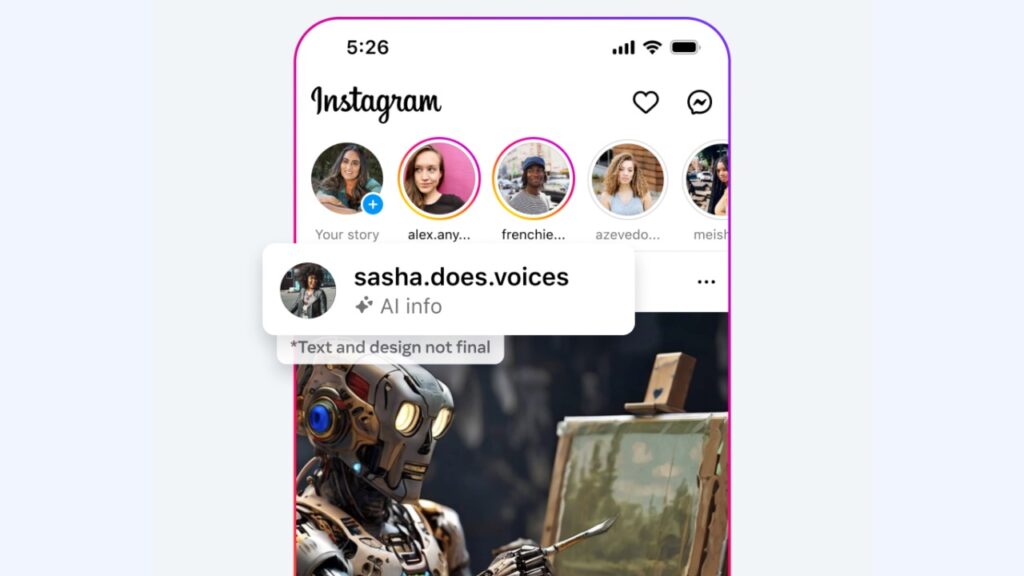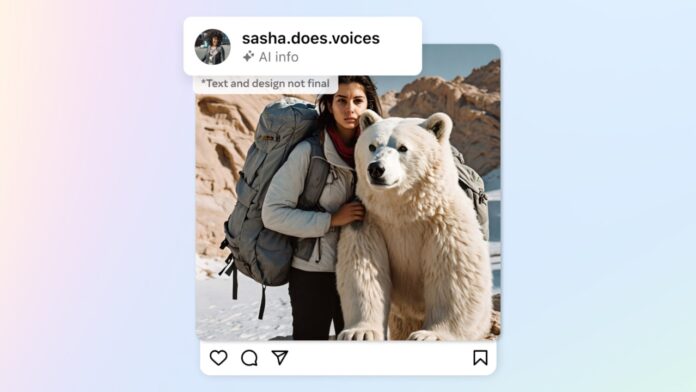Artificial Intelligence is being incorporated across various sets of digital fields, and to help its users identify between user-generated and AI-generated content, Meta will soon start labelling AI-generated images on Facebook, Instagram and Threads. Here’s what the company has to share about the latest development.
”As the difference between human and synthetic content gets blurred, people want to know where the boundary lies. People often come across AI-generated content for the first time, and our users have told us they appreciate transparency around this new technology. So it’s important that we help people know when photorealistic content they’re seeing has been created using AI”, said Meta in a blog post.
The company says that it has been working with industry partners to align on common technical standards that indicate when a piece of content has been created using AI. After detecting these signals, it will make it possible for Meta to label AI-generated images that users post to Facebook, Instagram and Threads.

Since AI-generated content appears across the internet, Meta says that it has been working with other companies in the industry to develop common standards for identifying it through forums like the Partnership on AI (PAI). There are invisible markers that Meta uses for its AI images, such as the IPTC metadata and invisible watermarks.
Read More: Meta’s WhatsApp Update: Shifts to Google Drive for Chat Backups
The company says it can label images from Google, OpenAI, Microsoft, Adobe, Midjourney, and Shutterstock as it implements its plans for adding metadata to images created by its tools. However, such metadata hasn’t been implemented in tools creating audio and video, so Meta cannot identify such AI-generated content. “While companies are starting to include signals in their image generators, they haven’t started including them in AI tools that generate audio and video at the same scale, so we can’t yet detect those signals and label this content from other companies”, the blog post read.
To tackle the issue, in the meantime, it is adding a feature for people to disclose when they share AI-generated video or audio so Meta can add a label to it. “We’ll require people to use this disclosure and label tool when they post organic content with a photorealistic video or realistic-sounding audio that was digitally created or altered, and we may apply penalties if they fail to do so”, said Meta.
Meta also urges its users to stay aware of the content being shared on social media and check accounts to see whether they regularly share AI-generated content so they can stay informed about which content is synthetic and which one is made by a human.
“AI-generated content is also eligible to be fact-checked by our independent fact-checking partners, and we label debunked content so people have accurate information when they encounter similar content across the internet”, said Meta.


